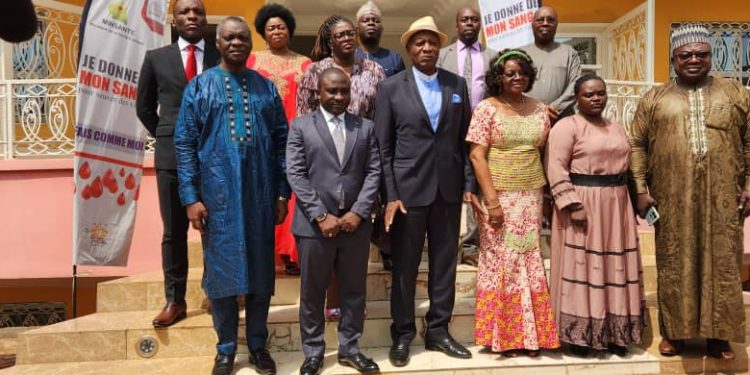By Wifah Jennyhans
In 2024, the National Blood Transfusion Service (NBTS), intends to continue its establishment and deployment on the field. It will also seek to fulfil its main mission which is the production of blood products in an effort to meet the growing demand all over the national territory.
The centre will equally continue to mobilise human, financial and material resources that would enable it to assert itself as the number one regulator of blood transfusion in the country.
To attain these objectives and more, the NBTS is in need of sufficient funds and its Management Committee during its 5th ordinary session examined and approved FCFA 765 million, as the investment and running budget of the centre.
This amount is largely insufficient with regards to the requirements of the NBTS in accomplishing its daunting missions, at a time when blood transfusion occupies an unquestionably place in the health domain.
According to statistics, the overall need for blood stands at 400,000 pints per year. In 2022, the centre collected 147,034 pints of blood, though an increase from what was collected in 2021, this figure does not fill the gap.
As it stands, blood transfusion falls amongst the services enlisted in the Universal Health Coverage Scheme under implementation by the Ministry of Public Health.
To be able to bridge the gap in the supply of blood products, the NBTS needs resources that exceed the approved budget, reason why more than ever before, it will spread its tentacles to partners in search of funds to help it live up to expectation.
According to Professor Dora Mbanya, General Manager of the NBTS, “there is great need to organise more awareness campaigns, to make Cameroonians understand the importance of donating blood voluntarily. This calls for intense field work and mobilisation and that is why in 2024, the National Blood Transfusion Service hopes to recruit more personnel”.
Thanks to the Ministry of Public Health, the NBTS has acquired some equipment to enable it set up a laboratory to test and qualify blood and consequently, this will up the number of pints collected to meet the ever-growing need in blood products in Cameroon.
At the structural level, the NBTS already has regional representatives and the deployment process is continuing. However, pending the construction of the interregional blood transfusion centres, Professor Tetanye Ekoe, President of the Committee holds that there is need for the implementation of a vigorous and creative strategy to enable the rational use of the material and equipment from the project to strengthen the blood transfusion system, PRESYNATS.
This will boost the gradual and effective strengthening of the NBTS’s strategy as the sole operator with regards to blood transfusion in the country.








